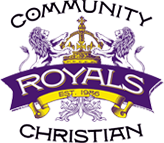Science Department
Earth Science - Instructor: Mrs. Garmon - This 8th grade course studies composition of our physical world and the systems that govern it. The science curriculum presents an engaging study of scientific philosophies and models, outer space meteorology, geology, and oceanography. (Bob Jones/Space and Earth Science).
Physical Science - Instructor: Dr. Hodgson - This 9th grade course studies science and the Christian in measurement, properties, and classification of matter along with models of atoms, the periodic table, forces between atoms and chemical reactions. The course finishes with physics in action by energy and momentum and matter in action. (Bob Jones/Physical Science)
Biology - Instructor: Mrs. Brown - A survey of the structure and function of cells and their organelles. Genetics, theory of beginnings, and various phylum. Technique and dissection of preserved organisms, along with the use of microscopes. (Bob Jones/Biology)
Zoology - Prerequisite: Biology - Instructor: Mrs. Garmon - A survey of Ecology, Bacteria, Virus, Protozoa, Fungi, Plants and plant processes, Ectothermic and Endothermic Vertebrates - technique and dissection, labs and field work.
Chemistry - Prerequisite: Physical Science - Instructor: Dr. Vaughan - Survey of the periodic table, elements and trends. Identifying types of chemical reactions, structure of compounds, writing and balancing chemical equations, and the use of conversion factors in stoichiometry. Use of laboratory equipment and procedures. (Glencoe/Chemistry)
Honors Chemistry - Instructor: Mrs. Vaughan - Honors Chemistry provides students with an in-depth introduction to chemistry. Students are introduced to various forms of matter. They learn about the basic components of the atom andelectron orbitals. They will become familiar with the Periodic Table and learn how to use it to predictproperties of specific elements. They will learn about chemical bonding, practice stoichiometry, and learn basic reactions. Additional lessons have been included in this course to provide students with the more in-depth understanding that they will require for AP Chemistry.
Anatomy - Prerequisites: Chemistry and Biology - Instructor: Mrs. Brown - Study of the structure and functions of the systems of the human body, including histology and cells. Cat dissection, physiological lab activities and microscopes are utilized to aid in learning. (Glencoe/Human Anatomy)
AP Chemistry: Must have completed Honors Chemistry and Honors Algebra 2 - Instructor: Dr. Vaughan
Description:The AP Chemistry course provides a freshman-level college course to ensure that the student is prepared to succeed in college chemistry. This is accomplished by teaching all the topics detailed in the AP Chemistry Course and Exam Description. The course is organized around the four big ideas and is aligned with the six science practices. Laboratory experiments are conducted to compliment the material being learned. The experiments will include at least 20 labs, of which at least 6 will be inquiry-based labs. Lab time will account for over 25% of the instructional time—some labs are completed in one class period, but many labs require multiple periods. We meet as a class for seven periods a week—at least two-and-a-half of those periods are devoted to laboratory experiments and other like activities. Emphasis in this class is placed on application of chemical concepts with real-world applications. Each of the topics within the nine units are covered in depth, and the students will be assessed after the completion of each topic unit.
AP Physics: Must have completed or be enrolled in Pre-Calculus - Instructor: Dr. Hodgson
Description: AP Physics 1 is an algebra-based, introductory college-level physics course. Students cultivate their understanding of physics through inquiry-based investigations as they explore these topics: kinematics, dynamics, circular motion and gravitation, energy, momentum, simple harmonic motion, torque and rotational motion, electric charge and electric force, DC circuits, and mechanical waves and sound. AP Physics 1 is a full-year course that is the equivalent of a first- semester introductory college course in algebra-based physics. Prerequisite courses include having completed Algebra II or concurrently taking Algebra II or Calculus. Twenty-five percent of instructional time will be spent in hands-on laboratory work, with an emphasis on inquiry-based investigations that provide students with opportunities to demonstrate the foundational physics principles and apply the science practices. This includes that students design plans for experiments, make predictions, collect and analyze data, apply mathematical routines, develop explanations, and communicate their work. Students will be required to maintain a lab book and notebook with the materials given as some colleges may require students to present their laboratory materials from AP science courses before being granted college credit for laboratory work. Assignments will be given three times a week with an expectation that the students will watch videos assigned for the unit.
